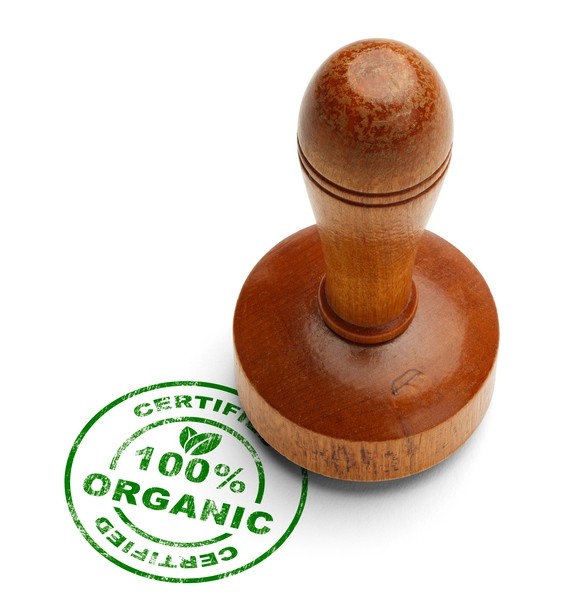USDA ditches organic checkoff program

The US Department of Agriculture’s (USDA) Agricultural Marketing service published the decision on Tuesday (May 15).
The announcement from the USDA was not anticipated, said Laura Batcha, CEO and executive director of the Organic Trade Association (OTA), the body that had made the original request for the program.
“It came as a complete surprise – the last we’d understood was, based on the precedent from previous checkoffs, we thought we’d cleared the threshold,” she told FeedNavigator. “We were very, very surprised – it was incredibly unexpected.”
The USDA released the program development plan for public comment in January, 2017. Its stated purpose was to establish an industry-funded research, information and promotion entity to promote or develop the use of organic products including feed inputs.
Organic producers and handlers with sales that exceeded $250,000 would have had to pay one-tenth of one percent of their net organic sales into the fund, according to the proposal. Importers also would have paid into the system, and smaller producers could opt-in to take part.
In the US, a commodity checkoff program collects funds, through a particular mechanism, from producers of a particular agricultural commodity and uses these funds to promote and do research on that particular commodity.
An initial referendum for those participating in the checkoff program would have had to pass before the program would have gone into effect, the USDA said.
However, the most recent decision circumvents that process, said Batcha. “They identified that they were unclear about the level of support for the program – the way you determine that is through a referendum and if the industry doesn’t want a checkoff they’ll vote it down,” she added.
“It is not lost on folks that the same week they terminated the organic program – they launched a proposal for the GMO labeling that has a smiley face on it,” she said. “At face value that does not appear like a level playing field – and USDA should be in the business of promoting choices for farmers, not in the business of picking winners and losers.”
USDA decision
In its announcement, the USDA said that it was terminating the proposed rule to establish the program for certified organic products along with a proposed rule on referendum procedures.
“USDA based the termination on lack of consensus within the industry ... and divergent views on how to resolve issues in implementing the proposed program,” the department said. “Termination of the rulemaking process removes communication restrictions and allows USDA to engage fully with all interested parties to discuss and consider the future needs of the industry.”
The US agency said that the concerns it considered before making the decision included how organic promotion would interact with other agricultural commodities, the voting methodology to be used in the program, the challenges of tracking imported organic products and the potential financial burden on small producers.
“Additional concerns were the method of assessment for imports, the assessment of non-food products and products ‘made with (specified ingredients)’ and the paperwork burden on covered entities,” said the department.
Funding
The checkoff program would have been a way to fund research for the organic sector, said Batcha. The industry sees some funding through the current Farm Bill, but if the bill is extended instead of having a new version approved that funding source could cease, she added.
“There are [research] needs in feed development, weed control, maximizing crop rotations with the requirement for cover crops – those are all high research needs,” she said. “And 30% of purchasers are new to the market – outreach is never-ending.”
Organic producers need support for educating members of the public and for addressing non-verified product claims, she said.
The OTA is currently in the process of reviewing the decision and its options, she said. It is unclear what the group’s next step will be.
There also may be repercussions beyond what this means for the organic industry, she said. “I’d be questioning what that meant for the future of all checkoffs,” she added.
Resistance to checkoff programs
However, there are some members of the organic industry that were not in favor of the checkoff program.
There have been questions regarding the effectiveness of other product checkoff programs, and their support of small producers, said Mark Kastel, co-director of the Cornucopia Institute. The institute is a farm policy research organization, which has been consistently against the checkoff program.
“It's an uncharacteristic win for organic family-scale farmers during this administration,” he told us. “They have only taken three other firm actions, that I know of, all overturning the collaborative work between the National Organic Standards Board and the organic community in promulgating regulations.”
Research into other checkoff programs has raised questions about the way that funding is managed and if farmers see much financial benefit from increased commodity sales, he said. If it had passed the referendum, the program also would have been the first to cover multiple commodities rather than focusing on a single one.
“There was a real question of if it would work,” he said. “There are restrictions on the books that you can’t disparage other commodities or foods, so it would be difficult to tell the story … Was it going to work? Was it going to be legally feasible?”
An alternative solution to improve research and education funding going forward would be to see organic research funded with equity from the USDA, he said.












